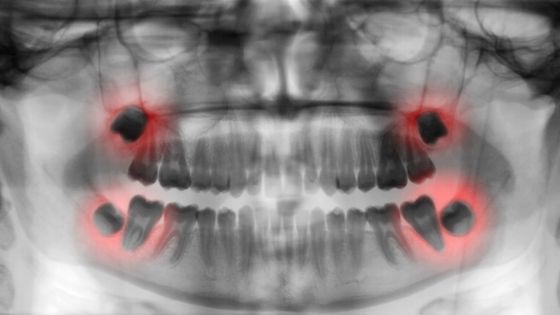Can I eat rice after wisdom teeth removal?

Can I eat rice after wisdom teeth removal? Yes, you can. If you're looking for a delicious but simple meal, pasta and rice are ideal options. To make them more palatable, cook these items longer than usual, making them soft enough to consume quickly.
Additionally, if the pasta is too large in size or shape, cutting it into smaller parts can help create an enjoyable eating experience, just like any other regular dish!
What to Expect After Wisdom Teeth Removal?

Swelling
After wisdom tooth removal, some individuals may experience swelling in their jaw or gums. Swelling is common and can last up to two weeks after the procedure.
Ice packs can help reduce the soreness and swelling of the affected area, as well as over-the-counter pain medications such as ibuprofen, acetaminophen, and Tylenol. It is also essential to keep your head elevated when lying down to reduce swelling and discomfort.
Bleeding and oozing
Additionally, it is normal for some bleeding and oozing from the surgical site for a few days following the surgery.
This can be managed with gauze pads placed at the extraction sites during procedures, which should be kept until they become soaked or no longer needed (usually take two or three hours).
It is also recommended that patients avoid smoking or using a straw for at least 24 hours afterward, as these actions can cause further bleeding.
Discomfort
Patients will likely experience some discomfort after surgery, including sore throat, pain in the ear area, and difficulty speaking. This discomfort should improve over time with proper rest and medication if necessary.
Soft foods such as yogurt, ice cream, and mashed potatoes may also help alleviate any pain associated with wisdom tooth removal.
Finally, it is essential for those who have had their wisdom teeth removed to practice good oral hygiene habits to ensure proper healing and prevent infection. Brushing teeth twice a day with fluoride toothpaste is essential, but care must be taken not to disturb any stitches in the mouth. Rinsing regularly with salt water can also help ease any discomfort after surgery by reducing inflammation of the gums.
Foods to eat after wisdom tooth removal
It is essential to take proper care of your oral health after wisdom tooth removal surgery to ensure optimal healing, and a big part of that includes eating the right foods.
While indulging in easy-to-chew comfort foods such as mashed potatoes or soup can be tempting, these may not provide the nutrition needed for a full recovery. Instead, there are some better options for post-surgery meals that can both nourish you and help your body heal.
Mashed Bananas
Mashed bananas are an excellent option for those who have recently had their wisdom teeth removed, as they are soft and easy to eat without putting too much strain on tender gums.
Bananas also provide essential vitamins, minerals, and fiber, which will help your body recover from surgery faster.
Yogurt
Yogurt is another excellent food option after wisdom tooth removal since it's high in protein while remaining soft enough to swallow without difficulty.
It also contains probiotics which are beneficial bacteria that help maintain a healthy balance in the gut – something significant after surgery when digestion is more sensitive.
Oatmeal
Oatmeal is a fantastic source of complex carbohydrates, making it an ideal breakfast choice after wisdom tooth extraction.
It's also high in fiber which helps reduce inflammation and promotes bowel regularity, two things necessary for successful healing.
Smoothies
Smoothies are a great way to get plenty of nutrients into your system quickly and easily after wisdom tooth removal surgery.
By blending fruits like bananas, berries, and mangoes with plain yogurt or almond milk, you'll create delicious drinks packed with vitamins, minerals, and antioxidants that can help speed up recovery.
Applesauce
Applesauce makes a good snack or side dish when recovering from wisdom tooth removal since its soft consistency makes it easy to chew without putting too much strain on sensitive gums.
Plus, apples contain pectin, which has anti-inflammatory properties that can help reduce swelling in the mouth area after surgery.
Soft Fruits & Veggies
Soft fruits such as peaches or melons can also make an excellent post-surgery snack since chewing isn't required – mash them up! Likewise, with cooked vegetables like carrots, squash, or eggplant, steam them until they're tender enough to eat with ease.
How Rice Can Help with Recovery after wisdom teeth removal
Rice is an excellent source of comfort after wisdom teeth removal as it provides carbohydrates for energy and healing.
Consuming cooked white rice will keep the patient nourished while their mouth is healing, as it can easily be mashed and added to other soft foods.
The starch in cooked white rice helps soothe swelling, reducing pain and promoting healing.
Eating small amounts of this food throughout the day can help speed up recovery time significantly while giving much-needed nutrition to the body.
It is important to avoid overly hot or cold meals or liquids to reduce any further discomfort.
Tips for Preparing and Eating Rice Safely Following Surgery
Eating healthily is an integral part of recovery following surgery. Rice can be a convenient and nourishing source of carbohydrates, but it must be prepared carefully to reduce the risk of foodborne illness.
Start by washing rice thoroughly before cooking - scrub it between your hands if necessary - and then boil the grains in plenty of water until the rice is soft and tender.
When eating, use clean utensils, serve freshly cooked rice at safe temperatures, and avoid remaining leftovers for more than a few days.
By observing these simple tips, you can ensure that your post-surgery meals are nutritious and enjoyable!
Final words
Regardless of the type of food you consume after wisdom teeth removal, always make sure to chew and swallow slowly.
Chew on the opposite side of your mouth and take small bites to avoid irritating the surgical site.
Your dentist or surgeon may suggest that you avoid hard, crunchy, or sticky foods as they can be more difficult to eat after a procedure like this.
It's important to follow your dentist's instructions and start eating nutritious foods as quickly as possible to promote recovery.
These steps will ensure you experience a speedy healing process and less discomfort!
DISCLAIMER: buildyourbody.org does not provide medical advice, examination, or diagnosis.
Medically reviewed and approved by Nataniel Josue M D.

